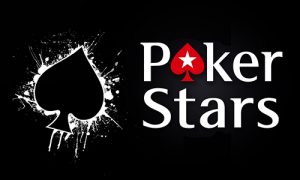PokerStars Founder Isai Scheinberg Finally Surrenders to U.S. Authorities
Couldn’t avoid the inevitable
If there was an online poker Mount Rushmore, Isai Scheinberg’s face would almost certainly be carved into it. He co-founded PokerStars, after all, the most popular internet poker site of all time. But being one of the most important people in online gambling history didn’t surround him by a force field that protects him from the law. On Friday, January 17, Scheinberg surrendered to United States authorities after being the only principal named in the Black Friday indictments who had yet to settle with the U.S. Department of Justice.
Nathan Vardi of Forbes.com broke the news Friday, reporting that Scheinberg willingly gave himself up to federal agents in New York. Even before Black Friday, he hadn’t stepped foot in the U.S. in a couple of decades for fear of apprehension. But once he was charged with money laundering, bank fraud, and illegal gambling in April 2011, he was staying away for good.
According to Forbes, “…federal prosecutors launched extradition proceedings during a visit Scheinberg made to Switzerland.”
Though he tried to fight extradition, Scheinberg eventually saw the writing on the wall and agreed to fly to the States to turn himself in. He pleaded not guilty in federal court and was released on $1 million bail.
Federal prosecutor Olga Zverovich said in a Wednesday hearing that the government and Scheinberg’s representatives “have an agreement in principle on the basic terms” of a settlement.
A brief, incomplete history of Scheinberg and PokerStars
 Scheinberg created PokerStars in 2001, the very early years of online poker, before the “poker boom.” That poker boom started in earnest in 2003 thanks to three things: improvements in televised poker (specifically hole cards), Chris Moneymaker’s World Series of Poker Main Event win, and the rise of online poker.
Scheinberg created PokerStars in 2001, the very early years of online poker, before the “poker boom.” That poker boom started in earnest in 2003 thanks to three things: improvements in televised poker (specifically hole cards), Chris Moneymaker’s World Series of Poker Main Event win, and the rise of online poker.
The latter two are tightly linked. Part of Moneymaker’s appealing story was that he qualified for the WSOP Main Event via a satellite tournament on PokerStars. Online satellites were a new thing in the poker world and the excitement that grew as home game players tried to become the next poker legend put PokerStars on the map. Stars became the internet poker site to go to for tournaments.
PartyPoker was the 800-pound gorilla of the online poker industry at the time, but when the Unlawful Internet Gambling Enforcement Act (UIGEA) passed in 2006, PartyPoker’s parent company, PartyGaming, decided to withdraw from the U.S. market. PokerStars, Full Tilt Poker, Absolute Poker, and UltimateBet moved in to fill the vacuum. PokerStars grew to become the behemoth with which we have all become familiar.
One of the interesting things about PokerStars and Scheinberg is that, even after Scheinberg was named in the indictment, he – and by extension, PokerStars – became a hero of sorts in the online poker community. The site was shut down temporarily by the feds, but eventually got back up and running, serving players outside the United States. While Full Tilt had no money to repay its customers and both Absolute Poker and UltimateBet disappeared with people’s money, PokerStars had been responsible with its players’ funds. American customers got refunded in fairly short order.
On top of that, part of the company’s $731 million settlement of its civil lawsuit with the U.S. government involved the acquisition of Full Tilt Poker and the repayment of Full Tilt’s customers. The process took years, but most players were made whole. Extra money was even used to get Absolute Poker players their money back.
Criminal and a good citizen?
So here you have a man who was charged with serious crimes by the U.S. government, but at the same time ran a company that operated responsibly. All in all, PokerStars did right by its customers. And though the charges were legitimate, I would guess that most poker players were fine with PokerStars breaking the law, since by doing so, people were able to play online poker and transfer their money back and forth (until Black Friday).
This dichotomy between committing illegal acts and at the same time running a good online poker company put Isai Scheinberg in interesting position in the poker world. Because he is one of the most important people in poker history, there was a push a few years ago to get him into the Poker Hall of Fame. Some well-respected poker players like Terrance Chan were adamant that he should be so honored. But there was a cloud hanging over Scheinberg. Not only was he named in the indictment, but he also wouldn’t return to the U.S. to face the music.
As my colleague, Haley Hintze (who is a semi-finalist for a Global Poker Award!) opined in 2015, when PartyGaming got the hell out of dodge in 2006, “….industry responsibility regarding the US market fell to PokerStars, and when the big choice came, Isai Scheinberg simply did not stand up to his responsibility.”
She continued:
That’s how one wipes away a whole lot of good deeds and accomplishments, regardless of how outstanding — at least, relative to its competition — PokerStars always was as a poker site. It doesn’t matter any more; Isai has run off with his money, for better or for worse. A US-based Poker Hall of Fame simply -cannot- consider him for enshrinement when all things are considered, including the damage to poker in general and online poker in particular that Black Friday caused.
But now Scheinberg has turned himself in and is working on a deal. Gambling today is more accepted than it was even five years ago, with legal sports betting going mainstream and more states either passing or considering gambling expansion. Black Friday may finally be put permanently in the rearview. Will any of this affect Scheinberg’s place in the poker community’s consciousness? Unless he cares about the Poker Hall of Fame, which is extremely unimportant in the grand scheme of things, it probably doesn’t matter.



















COMMENTS